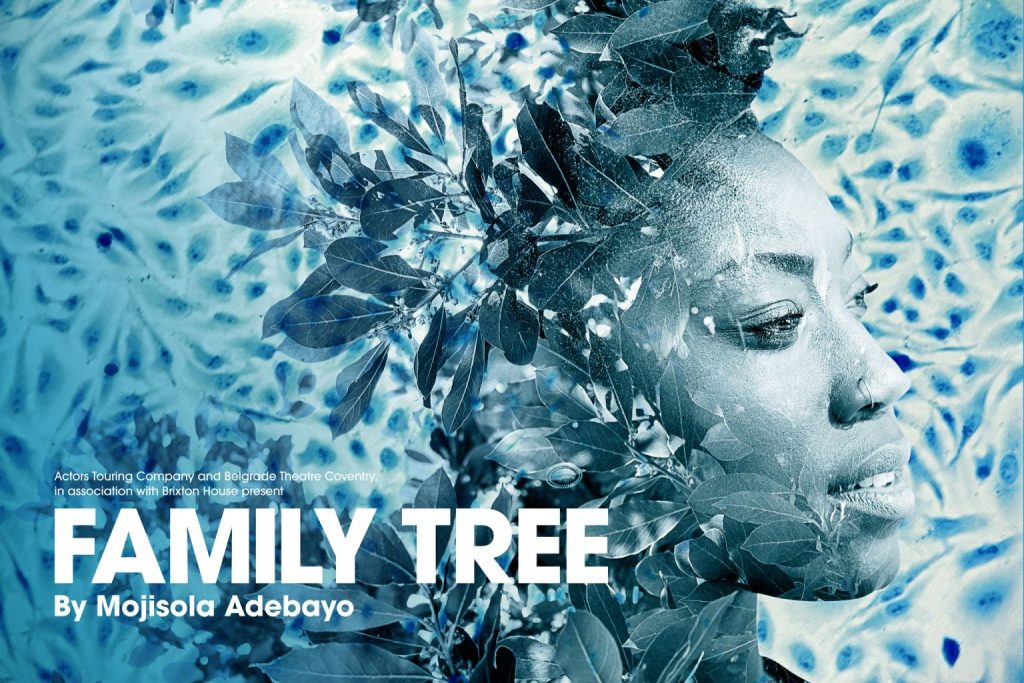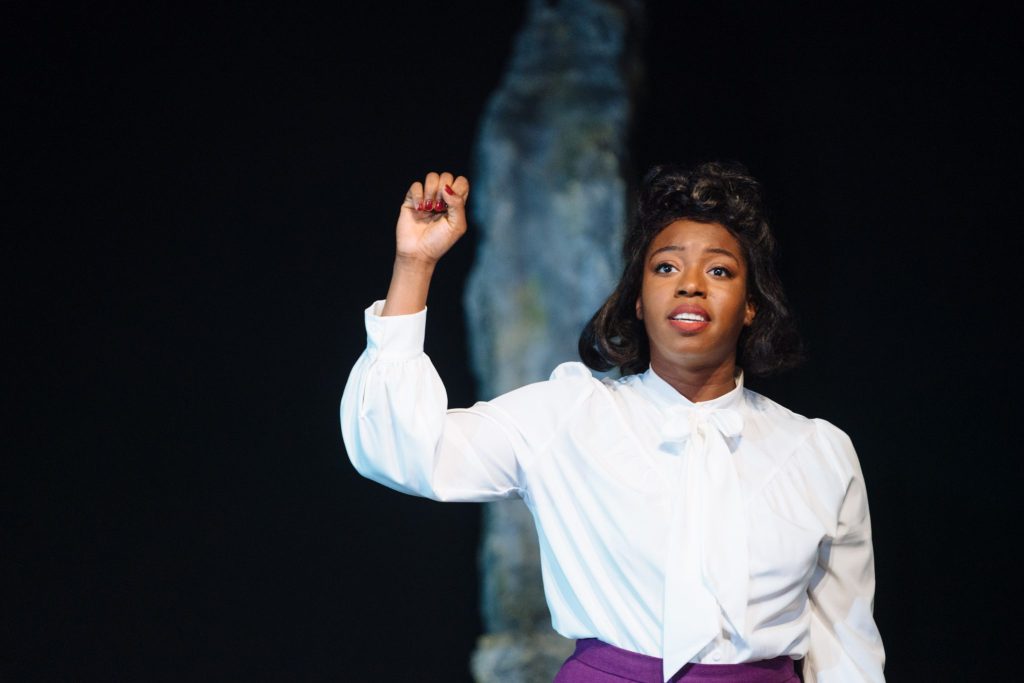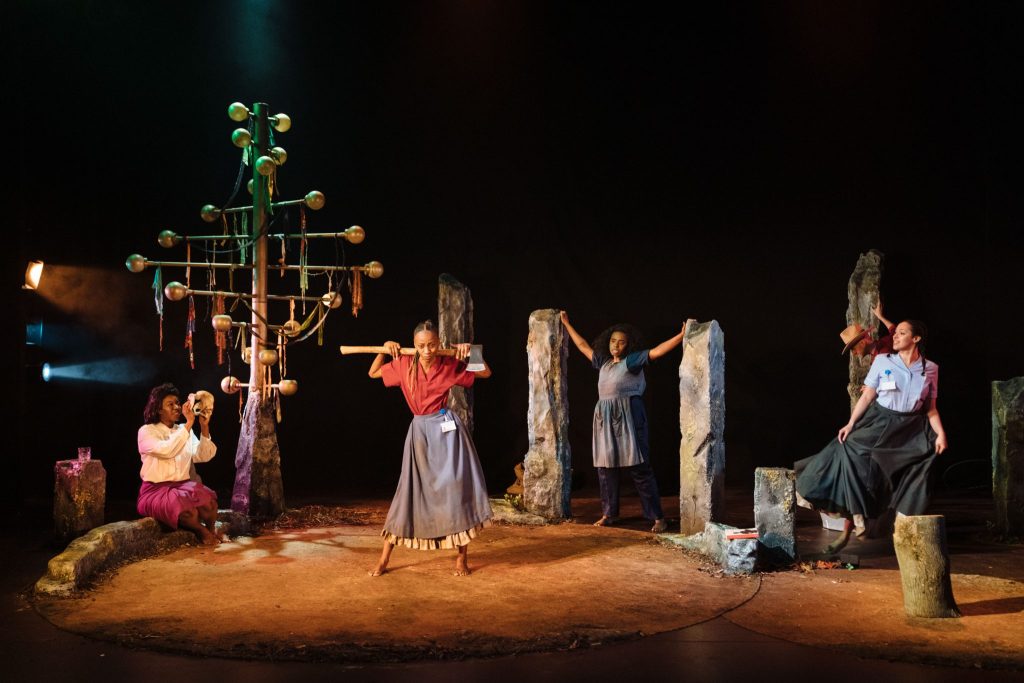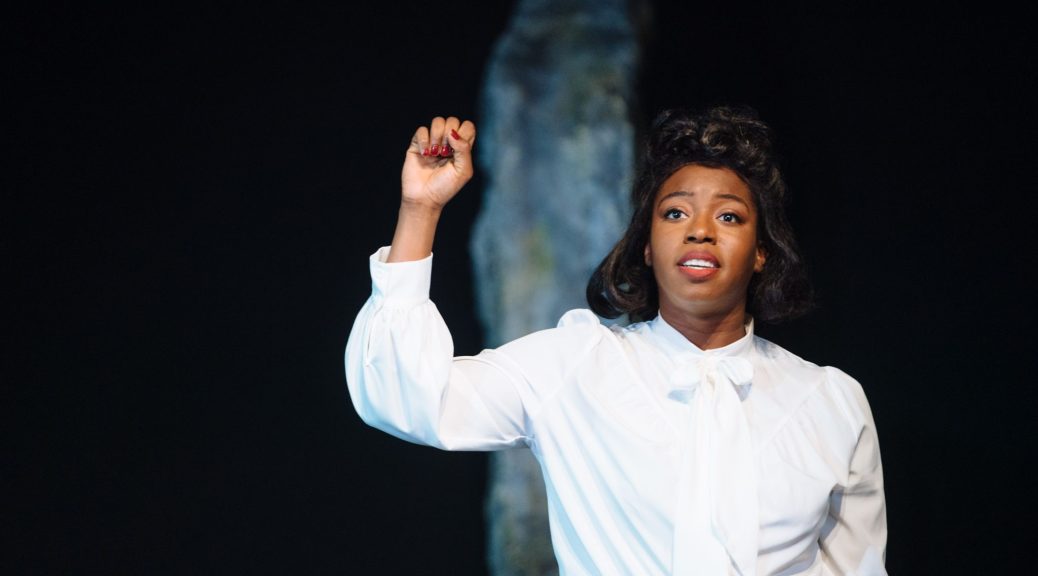
Family Tree, directed by Matthew Xia, greatly explores the era of segregation in the 1950’s, where Henrietta Lacks, performed by Aminita Francis takes to the stage to tell her story.

Playwright, Mojisola Adebayo
Playwright, Mojisola Adebayo poetically enacts how Henrietta Lacks, diagnosed with cervical cancer in 1951, endured difficulty to find treatment, leading her to turning towards St Johns Hopkins hospital, being the only hospital, medically treating black people at the time.

Production Photographs: Helen Murray
Aminita Francis, greatly enacts snippets of Henrietta’s personality as we see her disgust and detest for George Guy, the researcher for tissue culture at Hopkins hospital, who’d been trying to grow human cells outside of the human body for hundreds of years! We see the disturbance on Henrietta’s face as she dives in to the cheekiness, elaborating on how her cells were taken without her consent or knowledge and to be quite frank, why wouldn’t she!
Setting the scene, we get a good feel for the other amazing actresses playing multi-rolling parts as ancestors and nurses, played by Mofetoluwa Akande, Keziah Joseph & Aimée Powell, expressing their annoyance towards exploiters like George Guy, and stress the importance on the roots of racial injustices and the disproportionate inequalities in health care who never gave credit to the descendants of Henreitta Lacks irresistible cells and black people as a whole who have contributed greatly to society world-wide.

The set design by Simon Kenny is remarkable, with glowing, hanging immortal cells on a tall branched tree, an expression for Henrietta’s forever growing and dividing cells for years, where every medical centre wanted it for research, spreading vast across the entire world. Becoming one of the most important concepts for medicine, being used for space emission to see what would happen to human cells in zero gravity, created cancer medications, cloned for genes, helped to make the polio vaccine, mapping and the important ingredient used for all vaccines mankind injects, the entire world has undeniably benefitted from Henrietta’s cells.
However we also see how the most important cancer cells used for medical research, took her life also in October 1951, at the age 31 , never knowing how important her cells would be, until a science writer worked with the family to discover the truth, the uncovered well hidden legacy 5 decades later.
Family Tree is a strong reminder of what Henrietta has done for the world, and the mixed emotions of this incredible woman’s involvement in science especially, alongside the anger black people carry seeming everyone else can and has benefited from this, apart from black people, apart from the family. Immortal cells used all over the world for scientists research , labs and yet black people all over the world especially the family continue to suffer from basic health care.
This production paints a family tree of Black women whose cells, blood and waters have birthed, raised and changed the world by preserving her legacy. Family Tree is a vocal statement about Henreitta’s life and the (HeLa) genome, science and communications, and race and science, the history of science and medicine, and how it was built on the backs of black people without their knowledge. The concepts of what blackness means in a world that refuses to accept and embrace true history. Especially the unique story of HeLA, who continues to save lives, giving life, as her special cells can invigorate fertilisation, people till today still report being able to give birth thanks to HeLa cells, which is one of the many beautiful impacts of an incredible black woman who has been denied her place in history, which director, Matthew Xia, highlights creatively.
Catching up with playwright Mojisola Adebayo after the play, was insightful. Mojisola Adebayo, has done an incredible lyrical justice by enabling this play to be a poetical masterpiece, by powerfully executing the realities of race, inequality, health, the environment and the incredible legacy of one of the most influential Black women of modern times, Henrietta Lacks, whose influence on modern-day medicine, is so relevant, it can and will never be forgotten.
Family Tree metaphorically expands on beauty, in the context of honesty, life and our connection to nature, Orishi, the Nigerian goddess, talking trees, movement of expression through spiritual dance & connectivity. The power and manipulation of a slave owner is seen throughout this play, as well as many spiritual, ritualistic mediums of truth, love and ancestral rhythm which chants hope for all black people have lost, in the fight for power, peace and longevity. Family Tree is full of metaphorical, symbolic and spiritual codes, languages and passion, highly recommended!
This production will be touring nationally until, June 13 – 17. You can find out more about the production and book tickets here.

